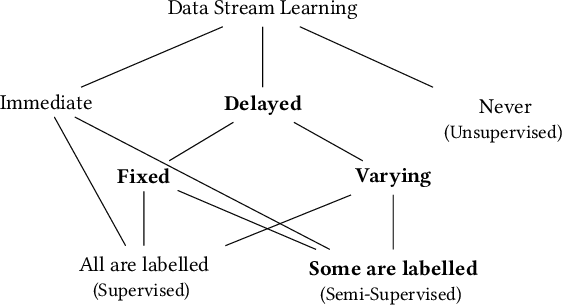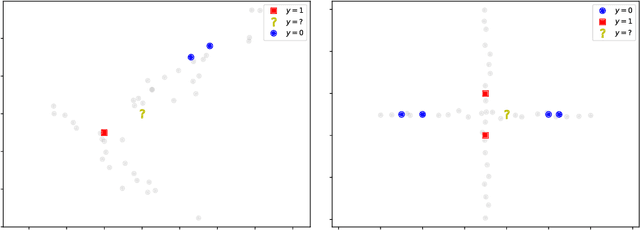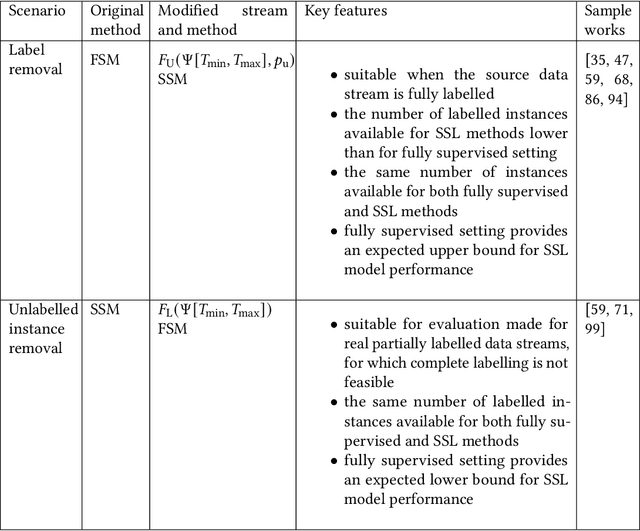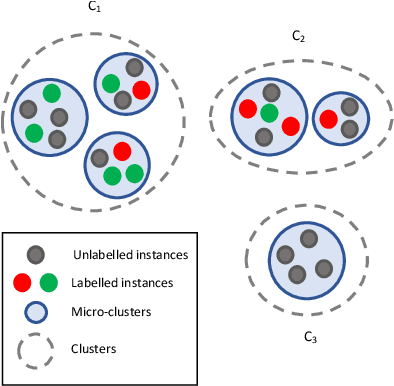Maciej Grzenda
Hybrid Ensemble-Based Travel Mode Prediction
Apr 22, 2024Abstract:Travel mode choice (TMC) prediction, which can be formulated as a classification task, helps in understanding what makes citizens choose different modes of transport for individual trips. This is also a major step towards fostering sustainable transportation. As behaviour may evolve over time, we also face the question of detecting concept drift in the data. This necessitates using appropriate methods to address potential concept drift. In particular, it is necessary to decide whether batch or stream mining methods should be used to develop periodically updated TMC models. To address the challenge of the development of TMC models, we propose the novel Incremental Ensemble of Batch and Stream Models (IEBSM) method aimed at adapting travel mode choice classifiers to concept drift possibly occurring in the data. It relies on the combination of drift detectors with batch learning and stream mining models. We compare it against batch and incremental learners, including methods relying on active drift detection. Experiments with varied travel mode data sets representing both city and country levels show that the IEBSM method both detects drift in travel mode data and successfully adapts the models to evolving travel mode choice data. The method has a higher rank than batch and stream learners.
* This preprint has not undergone peer review or any post-submission improvements or corrections. The Version of Record of this contribution is published in Advances in Intelligent Data Analysis XXII. IDA 2024. Lecture Notes in Computer Science, vol 14641. Springer, and is available online at Cham https://doi.org/10.1007/978-3-031-58547-0_16 The preprint includes 12+22 pages, 1+1 figures
Streaming detection of significant delay changes in public transport systems
Apr 11, 2024Abstract:Public transport systems are expected to reduce pollution and contribute to sustainable development. However, disruptions in public transport such as delays may negatively affect mobility choices. To quantify delays, aggregated data from vehicle locations systems are frequently used. However, delays observed at individual stops are caused inter alia by fluctuations in running times and propagation of delays occurring in other locations. Hence, in this work, we propose both the method detecting significant delays and reference architecture, relying on stream processing engines, in which the method is implemented. The method can complement the calculation of delays defined as deviation from schedules. This provides both online rather than batch identification of significant and repetitive delays, and resilience to the limited quality of location data. The method we propose can be used with different change detectors, such as ADWIN, applied to location data stream shuffled to individual edges of a transport graph. It can detect in an online manner at which edges statistically significant delays are observed and at which edges delays arise and are reduced. Detections can be used to model mobility choices and quantify the impact of repetitive rather than random disruptions on feasible trips with multimodal trip modelling engines. The evaluation performed with the public transport data of over 2000 vehicles confirms the merits of the method and reveals that a limited-size subgraph of a transport system graph causes statistically significant delays
* This preprint has not undergone peer review or any post-submission improvements or corrections. The Version of Record of this contribution is published in Computational Science - ICCS 2022. Lecture Notes in Computer Science, vol 13353. Springer, Cham, and is available online at https://doi.org/10.1007/978-3-031-08760-8_41
A Survey on Semi-Supervised Learning for Delayed Partially Labelled Data Streams
Jun 16, 2021



Abstract:Unlabelled data appear in many domains and are particularly relevant to streaming applications, where even though data is abundant, labelled data is rare. To address the learning problems associated with such data, one can ignore the unlabelled data and focus only on the labelled data (supervised learning); use the labelled data and attempt to leverage the unlabelled data (semi-supervised learning); or assume some labels will be available on request (active learning). The first approach is the simplest, yet the amount of labelled data available will limit the predictive performance. The second relies on finding and exploiting the underlying characteristics of the data distribution. The third depends on an external agent to provide the required labels in a timely fashion. This survey pays special attention to methods that leverage unlabelled data in a semi-supervised setting. We also discuss the delayed labelling issue, which impacts both fully supervised and semi-supervised methods. We propose a unified problem setting, discuss the learning guarantees and existing methods, explain the differences between related problem settings. Finally, we review the current benchmarking practices and propose adaptations to enhance them.
 Add to Chrome
Add to Chrome Add to Firefox
Add to Firefox Add to Edge
Add to Edge